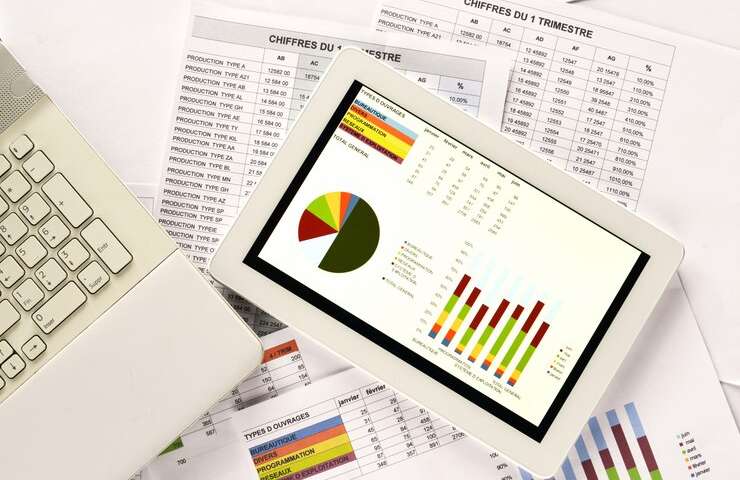Keeping a close eye on your company’s performance is more important than ever. Monitoring business performance not only helps you to identify potential issues early but also to collect quantitative data to make better decisions and plan strategically for the sustainable growth of your company.
By understanding and tracking key financial metrics and performance indicators, you can ascertain if your business is on the right path to achieving its goals or if there are changes to be made. In this guide, you will get to understand three effective ways to monitor your business performance to ensure the attainment of your goals. Before we discuss these methods, let’s take a look at why it is so important to monitor your business’ performance.
Importance of Monitoring Business Performance
Here are some of the benefits you can gain when you effectively monitor your business performance:
- Early Identification of Potential Issues
Regularly monitoring business performance helps you to detect potential problems before they escalate. By analyzing financial statements, KPIs, and other metrics, you identify trends or anomalies that indicate issues such as increasing expenses, declining sales, or cash flow problems. Early detection allows you to address these issues quickly, which minimizes their impact on your business.
- Improves Decision-Making
Accurate performance data gives you the insight to make informed and helpful business decisions. By having updated and accurate information on your company’s financial health, operational efficiency, and market trends, you can make strategic choices about budgeting, investment opportunities, and resource allocation. This leads to better planning and more effective management strategies.
- Tracks Progress Towards Goals
Monitoring performance helps you measure progress against your business goals and objectives. By regularly reviewing KPIs and financial metrics, you can assess whether you are on track to achieve your targets or whether adjustments need to be made.
- Enhances Financial Management
Keeping a close watch on financial performance ensures effective financial management. Regular reviews of financial reports, ratios, and dashboards help you manage cash flow, control expenses, and optimize revenue streams to maintain the profitability of your business.
- Supports Strategic Planning and Growth
Performance monitoring provides insights that are crucial for strategic planning and business growth. By understanding current performance metrics, you can identify expansion opportunities, refine your business model, and develop new strategies for growth that keep your business at the top of its game.
How to Monitor Business Performance
Here are three of the most effective ways to monitor your business performance and get concrete data and information to keep your business scaling and thriving.
1. Create Regular Management Reports
You cannot have a clear and accurate picture of your business’s financial health, which is essential in making informed business decisions if you do not keep a regular management report. Creating regular management reports entails systematically compiling and analyzing financial and operational data to have a clear overview of your business’s performance.
This process starts with engaging a professional accountant to ensure the accuracy of your financial records and compliance with appropriate regulatory bodies. After that, you move to adopting or implementing an accounting system or software to automate and streamline many of the time-consuming tasks involved in financial reporting, such as data entry, reconciliation, and report generation. This not only saves time but also improves efficiency and reduces the risk of human error. With an efficient accounting system in place, you can easily track key metrics, generate comprehensive reports, make adjustments, and access real-time financial data.
Examples of modern accounting systems or software you can adopt include:
- QuickBooks: Widely used by small to medium-sized businesses and easily integrates with various third-party applications.
- Xero: Has a user-friendly interface and is suitable for small businesses and startups.
- FreshBooks: Primarily designed for small businesses and freelancers and focuses on routine tasks like time tracking, expense tracking, invoicing, and project management.
- Sage Intacct: Ideal for growing businesses and larger enterprises and offers comprehensive and complex features.
- Wave: A free accounting software for small businesses and freelancers that covers basic and simple routine functions.
- NetSuite ERP: This is a paid and comprehensive enterprise resource planning (ERP) solution for larger businesses.
After hiring a professional accountant and adopting modern accounting software, you have to ensure your financial reports are reviewed monthly to ensure the accuracy and relevance of the report to the current market realities. Through regular reviews, you can easily and efficiently track revenue, expenses, cash flow, and profitability. This helps you identify trends and potential issues before they become significant problems and make adjustments to your strategies as needed.
2. Build Your Financial Dashboard
Building a financial dashboard is an essential thing to do to effectively monitor your business performance. A solid and well-designed financial dashboard provides a visual representation of the key performance indicators (KPIs) that are most relevant to your business. They can be financial metrics, such as revenue, gross margin, net margin, cash flow, receivables, and payables, and non-financial metrics, such as customer satisfaction, employee turnover, and operational efficiency.
You will need accounting software or a specialized dashboard tool to pull KPI data from various sources, such as your CRM, accounting system, and inventory management system, and customize and integrate them to get a holistic view of your business performance. Consolidating this data into a single dashboard allows it to be easily readable and for you to easily get valuable insights, maintain transparency, monitor progress toward your goals, and make informed decisions based on accurate and up-to-date information.
3. Understand Your Financial Ratios
Financial ratios are mathematical calculations derived from your financial statements that provide insights into various aspects of your company’s operational efficiency and financial status. These ratios are categorized into several types with each serving a different purpose:
- Profitability Ratios: These ratios measure your company’s ability to generate profit relative to equity, revenue, or assets. It includes the Gross Margin Ratio which indicates the percentage of revenue remaining after deducting the cost of goods sold, and the Net Profit Margin Ratio, which indicates the percentage of revenue remaining as profit after all expenses are deducted.
- Liquidity Ratios: These helps to assess your company’s ability to meet short-term obligations. The Liquidity ratio includes the Current Ratio and the Quick Ratio. The Current ratio measures the comparison between the current assets to current liabilities, while the Quick Ratio, also known as the acid-test ratio, excludes inventory from current assets to give you a stricter measure of liquidity.
- Solvency/Leverage Ratios: These ratios aim to evaluate the capacity of the company to meet long-term obligations and service its debt while remaining profitable. These ratios include the Debt-to-Equity Ratio, which measures the proportion of debt used to finance the company compared to shareholders’ equity, and the Interest Coverage Ratio which evaluates the company’s ability to cover interest payments on outstanding debt.
- Activity/Efficiency Ratios: These ratios assess the efficiency of the company in utilizing its assets and managing its resources. The two essential efficiency ratios are the Inventory Turnover Ratio measures and the Receivables Turnover Ratio. The former measures how quickly inventory is sold and replaced, while the latter assesses how efficiently accounts receivable are collected.
Final Words
Mac Adebowale Professional Service offers consulting services and assistance to small, medium, and large enterprises in monitoring their business performance and implementing these major strategies. Contact us now at emails@macadebowale.com and let’s get started on your path to business success.





